Starting your day with a morning yoga routine for beginners in India is more than just a fitness habit—it’s a lifestyle choice. Yoga combines physical exercise, mental relaxation, and spiritual focus, offering a holistic approach to health. For busy individuals in India, juggling work, family, and personal time, dedicating just 20–30 minutes to a daily yoga routine can drastically improve overall wellness.
In this blog, we’ll guide you through easy home yoga exercises, provide pro tips for beginners, and explain how this practice supports flexibility, strength, and mental clarity. By the end, you’ll have a structured routine that fits perfectly into your mornings, helping you feel energized, balanced, and ready to tackle the day.
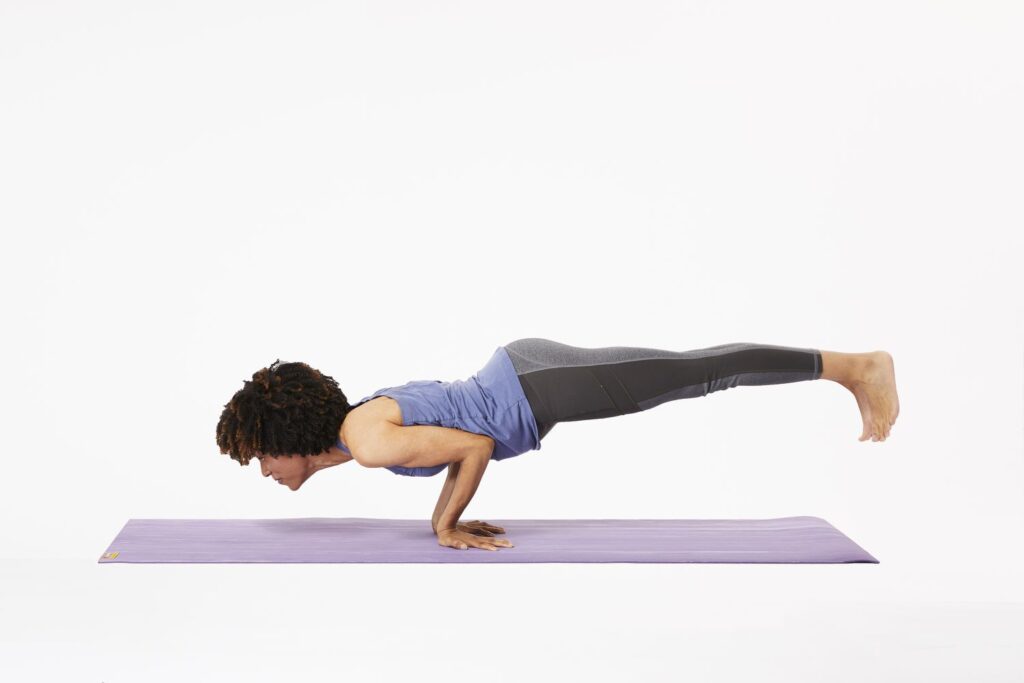
Benefits of Morning Yoga for Beginners
Yoga is an ancient practice, and incorporating it into your morning routine has scientifically proven benefits. Here’s why beginners should start early:
- Boosts Energy and Metabolism: Gentle stretches activate muscles and improve circulation, giving you natural energy for the day.
- Improves Flexibility and Strength: Home yoga exercises gradually loosen tight muscles and build core and limb strength.
- Reduces Stress and Anxiety: Mindful breathing and movement trigger relaxation hormones, promoting mental calmness.
- Enhances Focus and Productivity: A morning yoga practice sharpens your concentration and improves decision-making throughout the day.
- Supports Weight Management: Consistent practice can help regulate metabolism and aid in weight loss when paired with a balanced diet.
Pro Tip: For beginners, consistency matters more than intensity. Start small, and your body will adapt naturally over time.
Detailed Morning Yoga Routine for Beginners
Here’s a step-by-step morning yoga routine that even beginners can follow at home. The session lasts about 25–30 minutes.
1. Sukhasana (Easy Pose) – 2–3 minutes
Sit cross-legged on a mat, keep your spine straight, and close your eyes. Focus on slow, deep breaths.
Benefits: Centers the mind, improves posture, and prepares your body for the next exercises.
Pro Tip: Use a small cushion under your hips for comfort if needed.
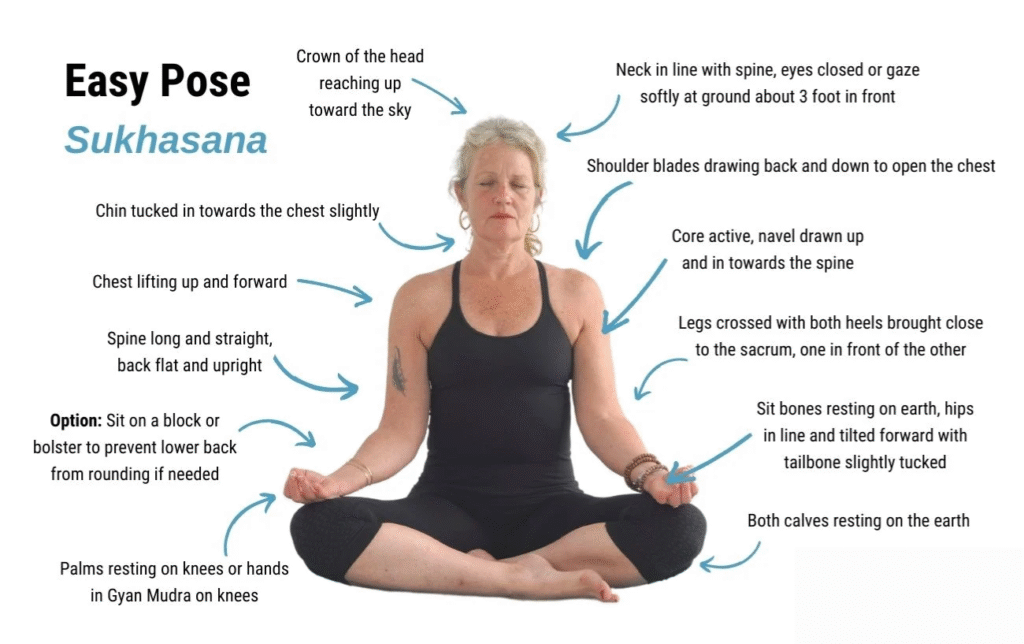
2. Neck and Shoulder Stretch – 2 minutes
Gently tilt your head side to side and roll your shoulders backward and forward.
Benefits: Relieves tension, improves blood flow, and reduces stiffness caused by sleeping positions.
Pro Tip: Move slowly and synchronize each stretch with your breath for maximum relaxation.
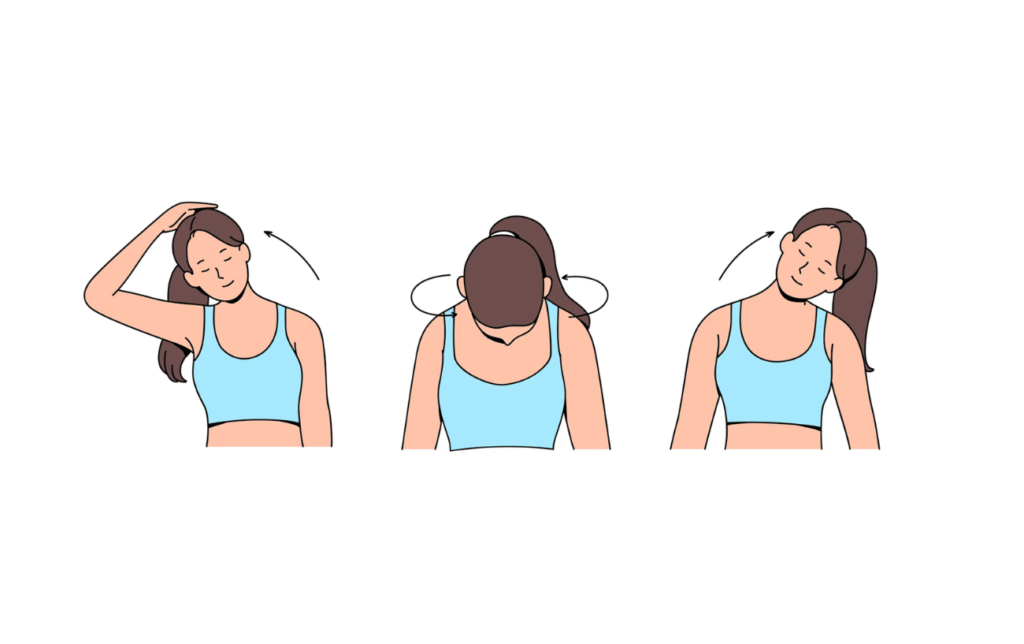
3. Cat-Cow Stretch (Marjaryasana-Bitilasana) – 2 minutes
On all fours, alternate arching (cow) and rounding (cat) your back.
Benefits: Enhances spine flexibility, strengthens core muscles, and stimulates digestion.
Pro Tip: Engage your core while inhaling and exhaling deeply for better spine alignment.
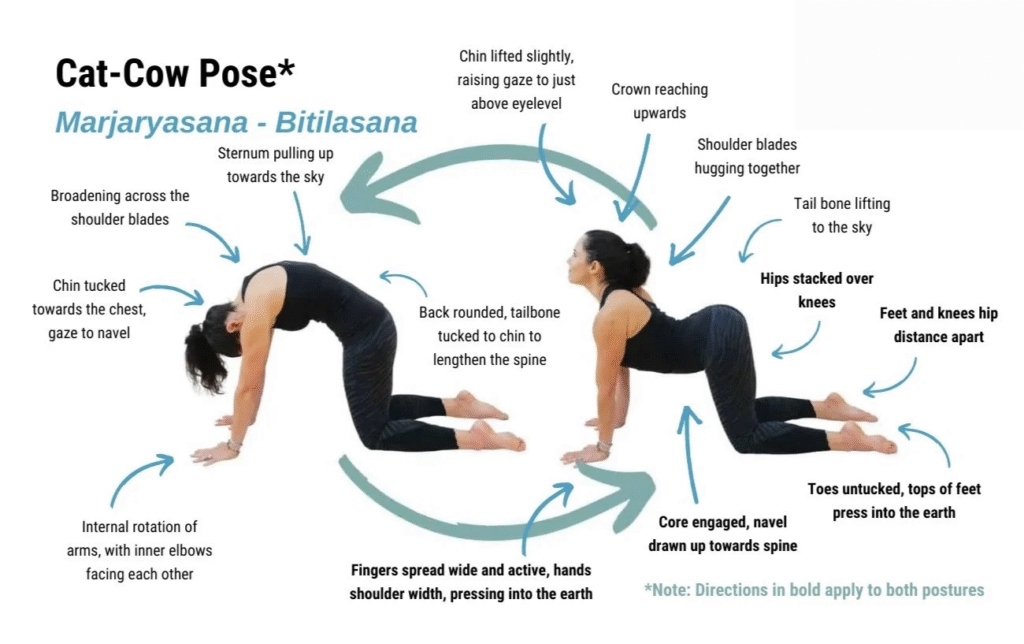
4. Tadasana (Mountain Pose) – 1–2 minutes
Stand tall, feet hip-width apart, and stretch arms overhead while lifting through the fingertips.
Benefits: Improves posture, strengthens legs, and boosts balance.
Pro Tip: Imagine your body growing taller with each inhale; this improves overall alignment and focus.
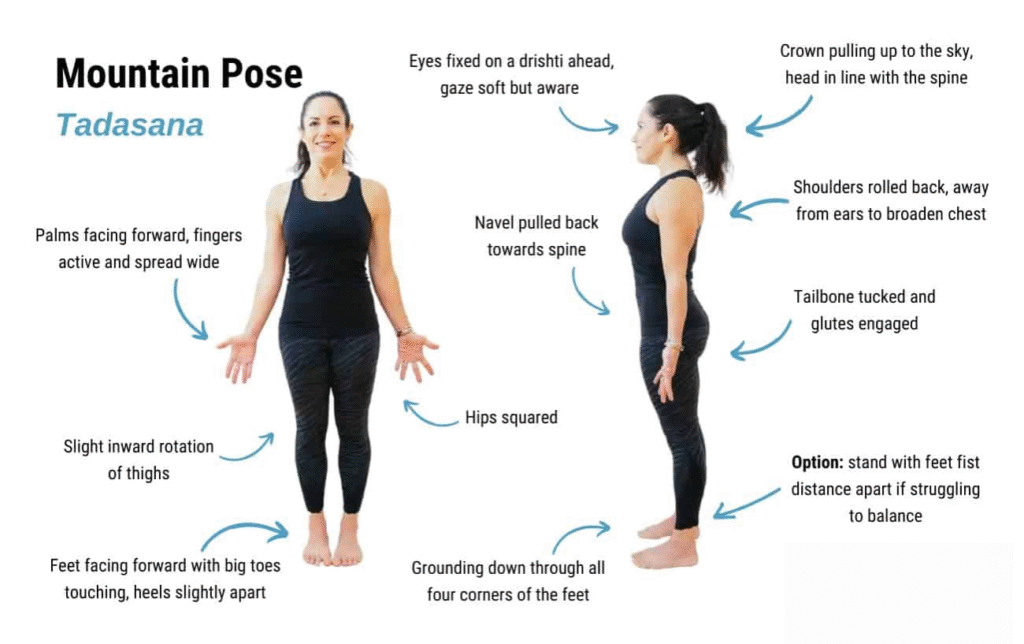
5. Adho Mukha Svanasana (Downward Dog) – 3 minutes
From standing, bend forward into an inverted “V” shape. Press palms into the floor and stretch your heels down.
Benefits: Strengthens arms and legs, stretches hamstrings and shoulders, and improves circulation.
Pro Tip: Beginners can slightly bend knees to maintain a comfortable stretch while gradually increasing flexibility.
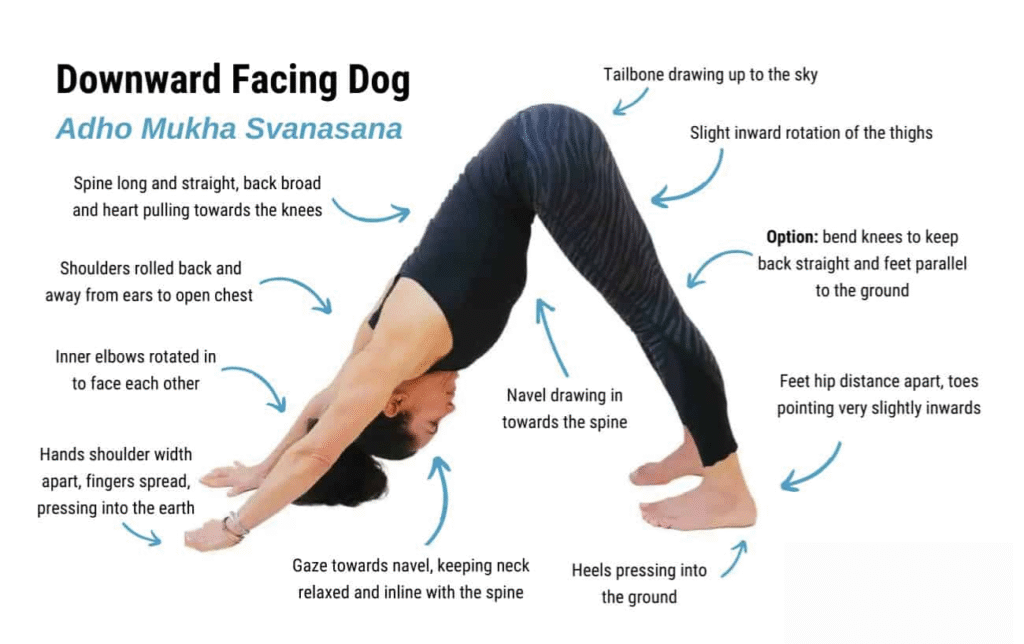
6. Bhujangasana (Cobra Pose) – 2–3 minutes
Lie on your stomach and gently lift your chest off the ground, keeping elbows close to your sides.
Benefits: Strengthens the spine, opens the chest, and improves lung capacity.
Pro Tip: Avoid straining your lower back; lift only as high as comfortable.
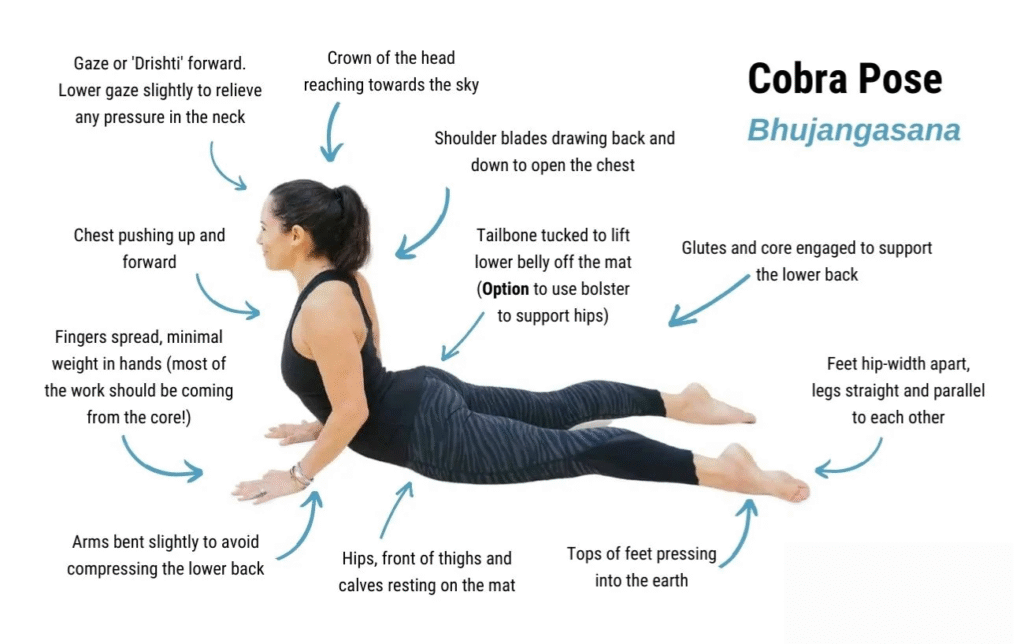
7. Trikonasana (Triangle Pose) – 2 minutes per side
Stand with legs apart, extend one arm towards the ceiling, and the other down towards your ankle.
Benefits: Enhances flexibility in the spine and legs, improves balance, and stretches lateral muscles.
Pro Tip: Use a yoga block if your hand doesn’t reach the floor.
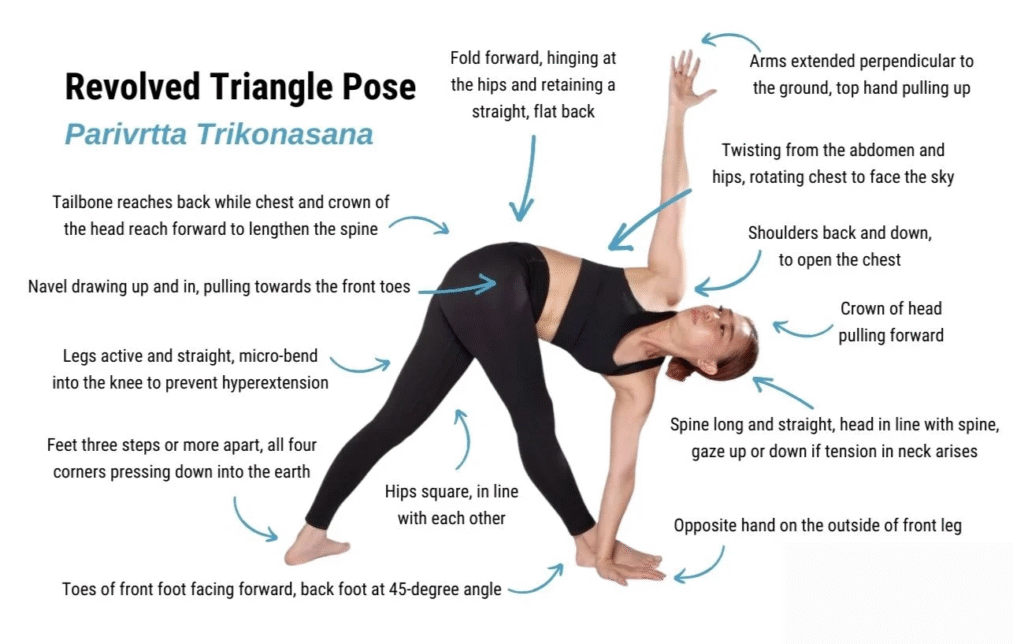
8. Setu Bandhasana (Bridge Pose) – 2–3 minutes
Lie on your back, bend your knees, and lift your hips towards the ceiling.
Benefits: Strengthens the back, glutes, and hamstrings; improves posture and opens the chest.
Pro Tip: Press feet firmly into the mat and keep thighs parallel to maximize core engagement.
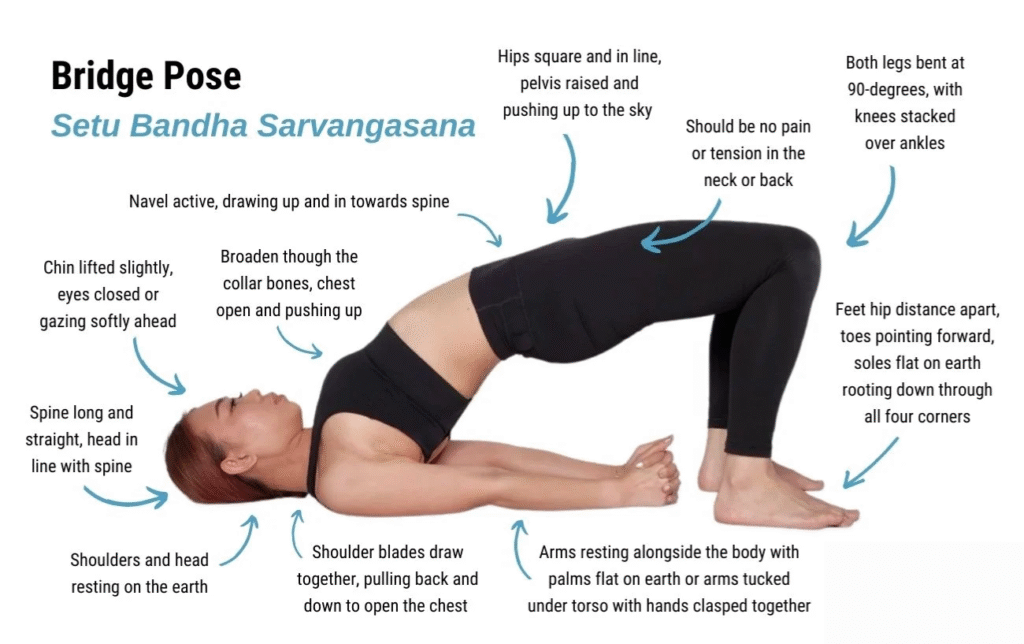
9. Balasana (Child’s Pose) – 3 minutes
Finish with this relaxing pose. Kneel, sit on your heels, and stretch arms forward, resting your forehead on the mat.
Benefits: Calms the mind, stretches the back, and reduces stress.
Pro Tip: Focus on deep belly breathing to enhance relaxation.
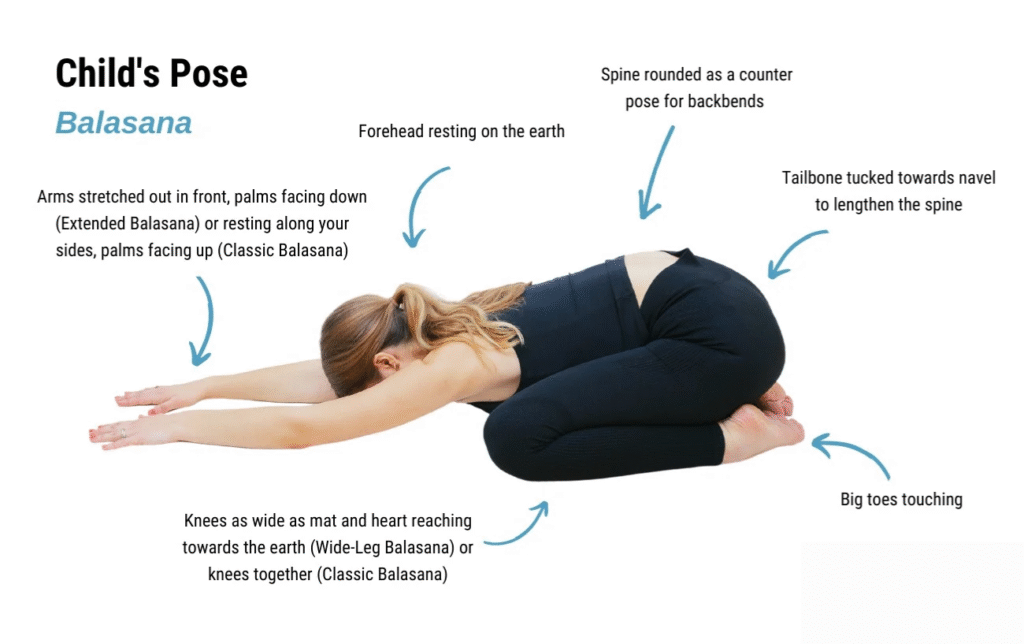
Additional Tips for a Successful Morning Yoga Routine
- Practice on an Empty Stomach: Morning yoga before breakfast optimizes energy and digestion.
- Create a Dedicated Yoga Space: A quiet, well-lit area helps improve focus and consistency.
- Wear Comfortable Clothing: Breathable and flexible attire enhances movement.
- Incorporate Breathing Exercises: Try simple pranayama techniques like Anulom Vilom for mind-body balance.
- Track Progress: Note improvements in flexibility, stamina, and mental clarity weekly.
Internal Links:
- Complement your routine with our Core Workout for Beginners to build stability.
- Check our guide on Home Full-Body Workouts Without Equipment for additional fitness support.
FAQs
Author Bio
Vikrant Rajput is a wellness and fitness blogger with a passion for yoga, home workouts, and holistic health practices. He helps beginners in India and worldwide achieve fitness goals through easy-to-follow, science-backed routines. With years of personal practice and research, Vikrant shares tips to improve strength, flexibility, and mind-body wellness.








One response to “Morning Yoga Routine for Beginners in India”
[…] Also read: Morning Yoga Routine for Beginners in India👉 Related: 10 Best Yoga Poses for Belly […]